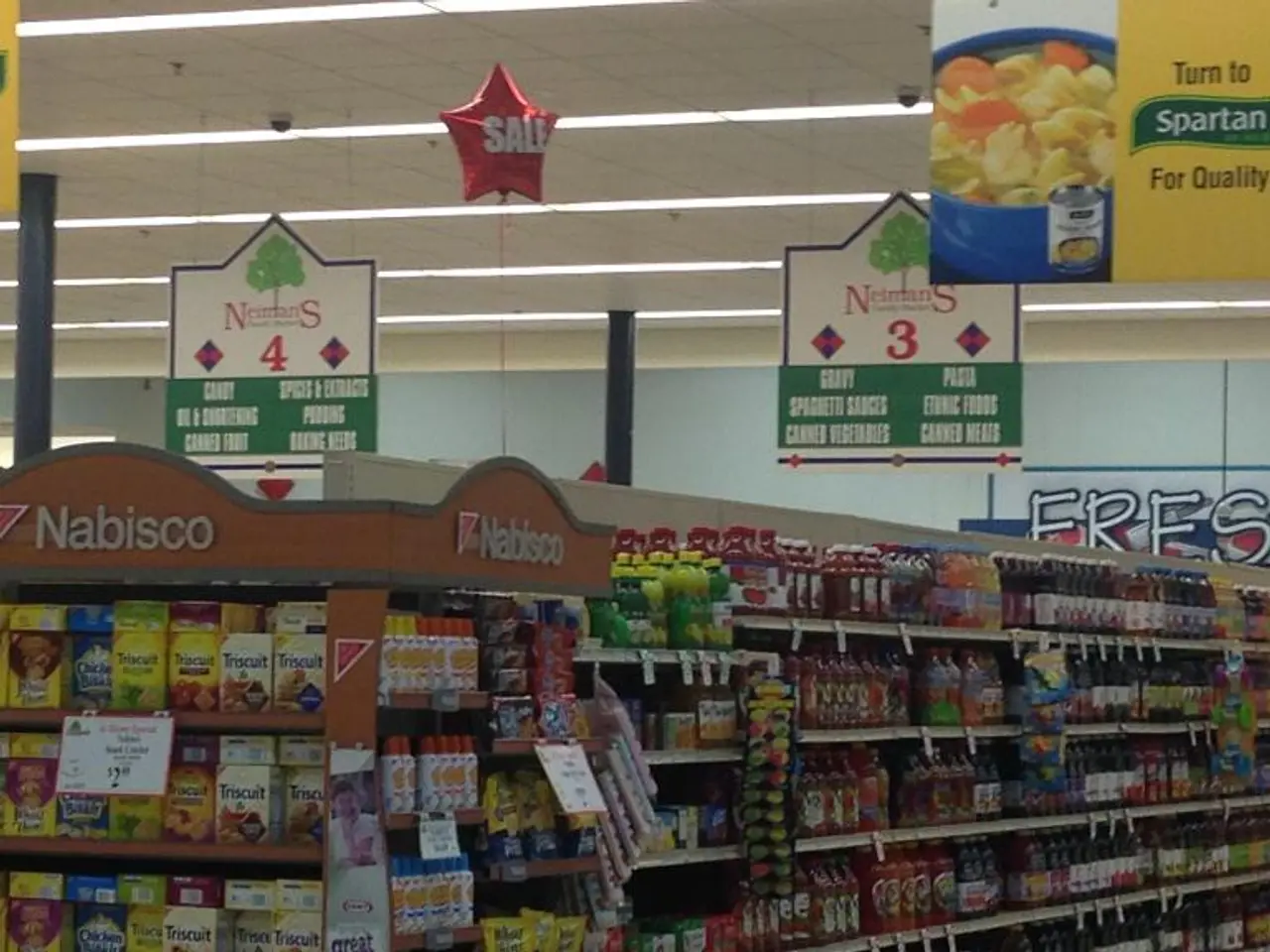Businesses emphasize eco-friendly stores to attract environmentally aware shoppers
=====================================================================================
In the world of high-end retail, a shift towards sustainability is underway. This movement is particularly evident in regions like Asia, but it's also making waves in the U.S., where established brands are embracing eco-friendly practices.
Leading the charge is Package Free, a store opened in Brooklyn, New York in 2017 by Lauren Singer. The store's mission is simple yet impactful: to provide products and solutions for people who want to reduce their waste.
Package Free's approach is twofold. First, the store seeks out products that replace single-use items and don't have plastic packaging. Second, it partners with recycling firm TerraCycle to provide recycling bins for electronics, personal care, oral care, and other waste.
Singer, the store's founder, believes that the burden of waste should always fall first on the manufacturer and then on the retailer or reseller. She argues that retailers have the power to influence vendors to consider the planet in their manufacturing and shipping processes.
This shift towards sustainability is not just about doing good for the environment; it's also a cost-savings tool and a marketing opportunity. Retailers, including Package Free, see environmentally-responsible storefronts as a way to attract eco-conscious consumers and position themselves as leaders in sustainability.
The store's physical space is a testament to this commitment. It uses sustainable wood, milk paint, energy-efficient light bulbs, and vintage lighting fixtures. Even the store's product range is focused on health, beauty, and lifestyle products aimed at reducing waste.
Package Free's influence extends beyond its initial customer base. Customers who happen to come across the store appreciate its mission, indicating that the store's impact is broader than just its immediate community.
In the U.S., well-known retail chains like Walmart, Kohl’s, Target, Starbucks, Best Buy, REI, Whole Foods Market, McDonald’s, Verizon, and Bank of America are also jumping on the bandwagon. These brands are not only operating LEED-certified stores but are also pursuing an environmentally responsible development in the stationary retail sector.
Package Free recently raised $4.5 million in funding, which will be used for marketing efforts and product development. This investment underscores the growing interest in sustainable retail and the potential for these stores to make a significant impact.
Building sustainable storefronts from scratch is easier, according to Singer. However, coordination is required between retailers' legal, sustainability, and tenant coordination teams to find landlords who align with sustainability goals. Retailers are seeking landlords who provide environmentally friendly spaces.
In conclusion, the retail sector is undergoing a transformation as brands embrace sustainability. From testing products before selling them to shoppers, to partnering with recycling firms, to using sustainable materials in their stores, retailers are creating environmentally-responsible brick-and-mortar stores. This shift not only benefits the environment but also offers a competitive edge in the market.
Read also:
- Understanding Hemorrhagic Gastroenteritis: Key Facts
- Stopping Osteoporosis Treatment: Timeline Considerations
- Tobacco industry's suggested changes on a legislative modification are disregarded by health journalists
- Expanded Community Health Involvement by CK Birla Hospitals, Jaipur, Maintained Through Consistent Outreach Programs Across Rajasthan








